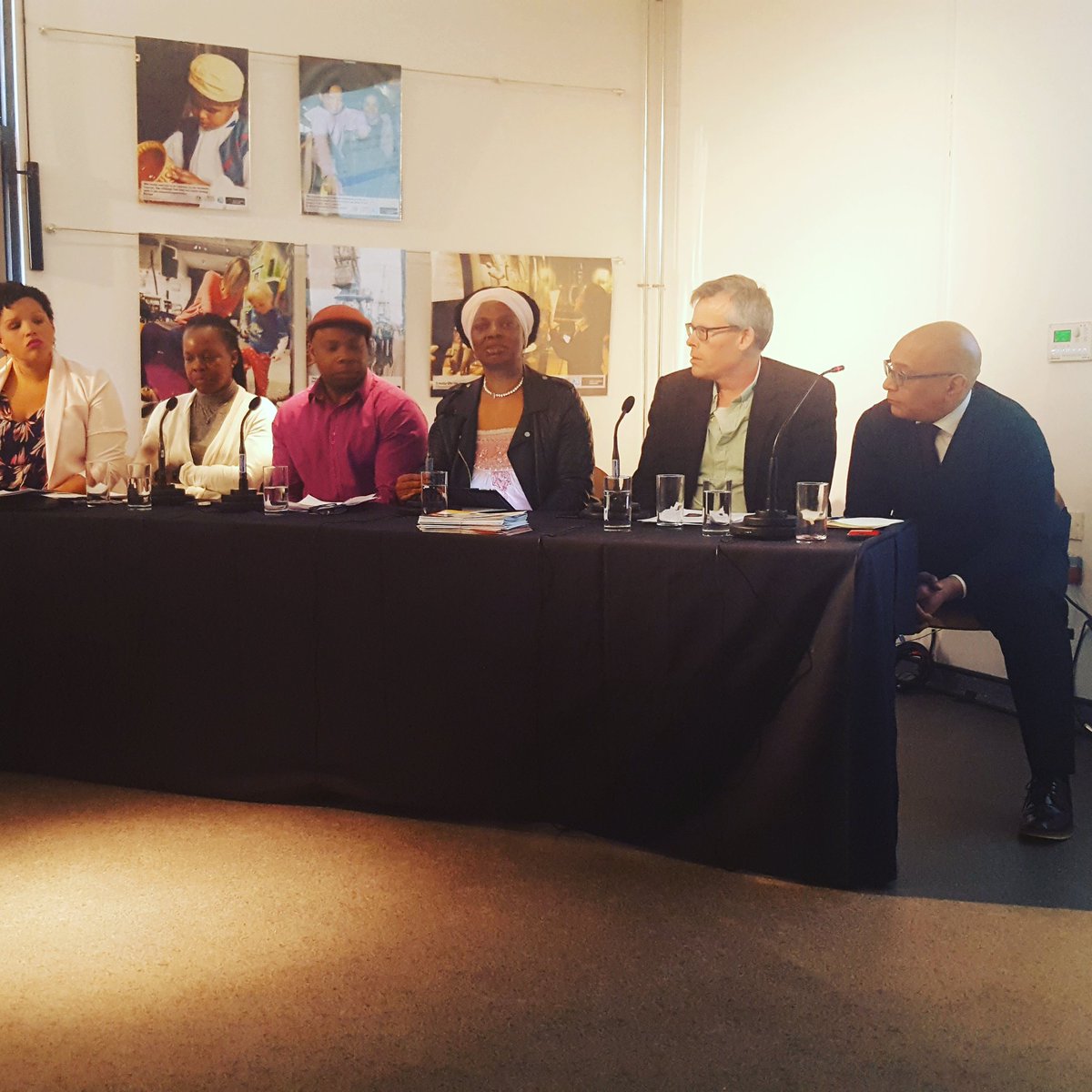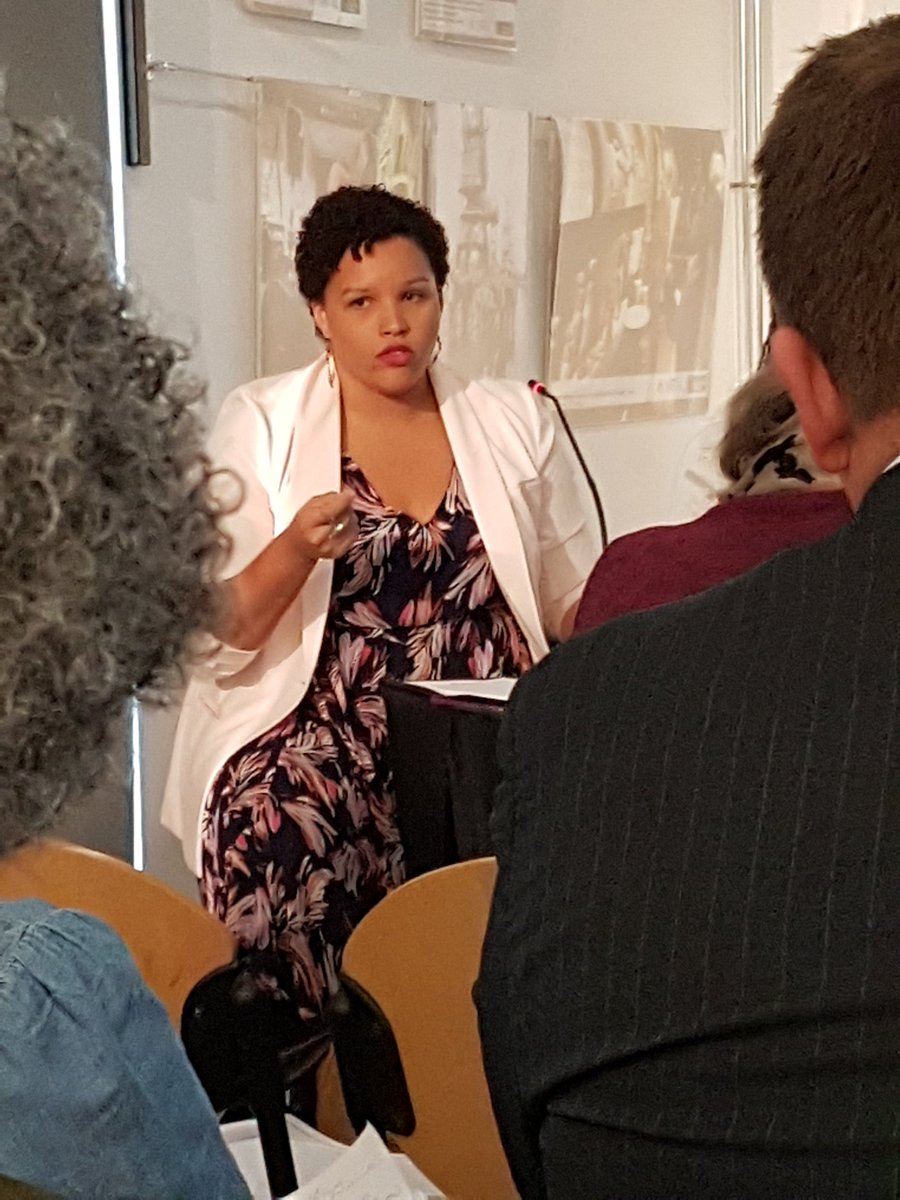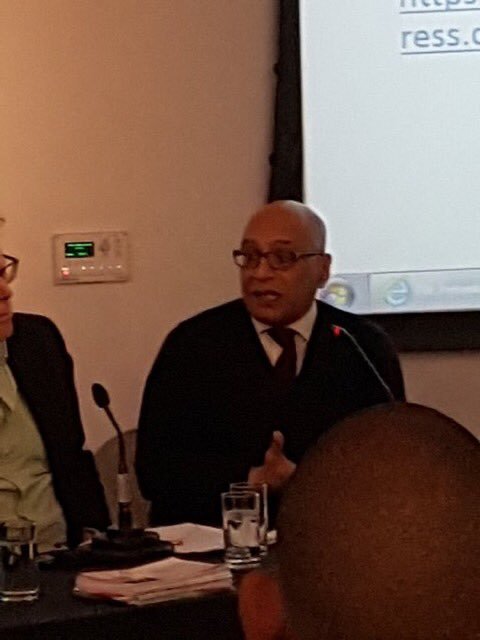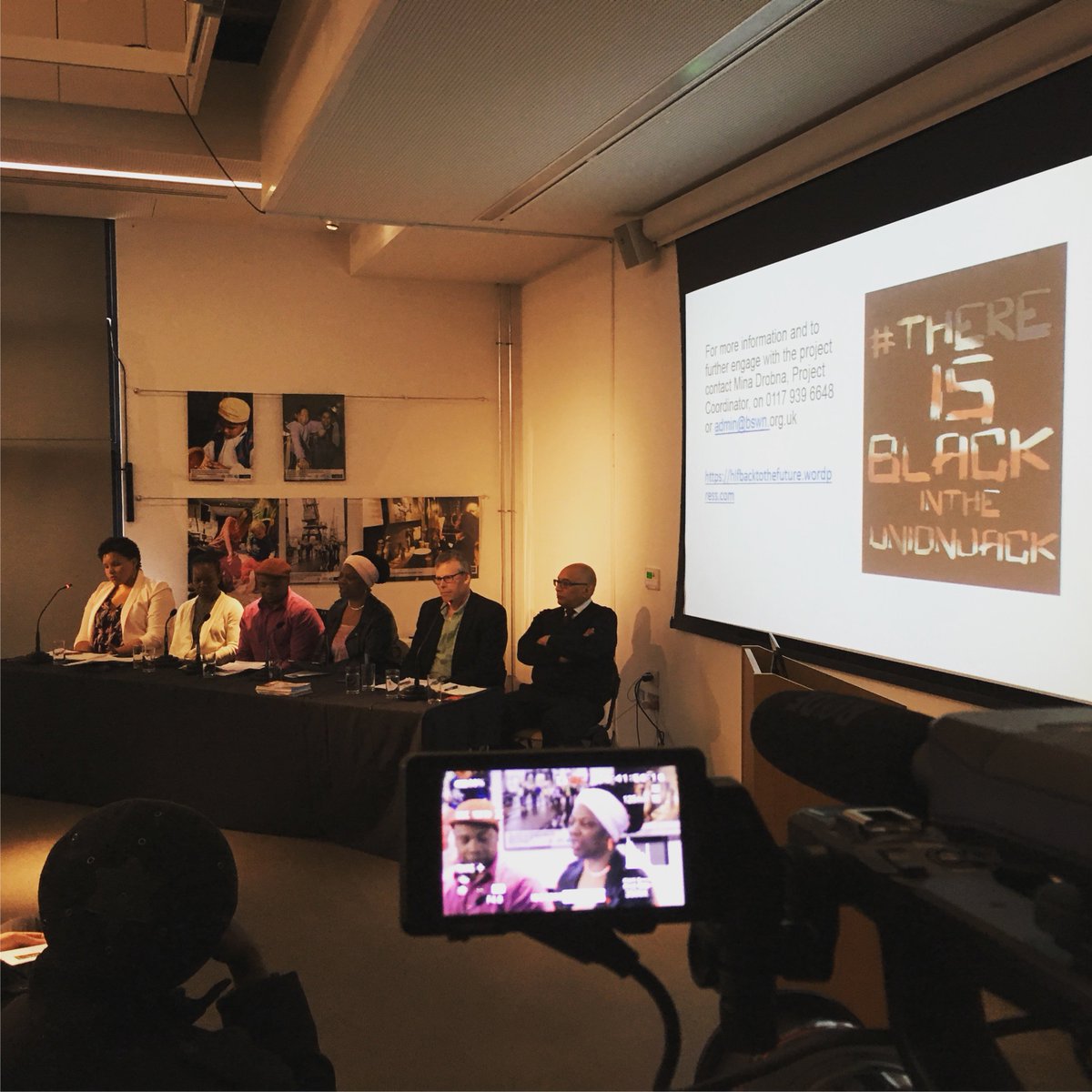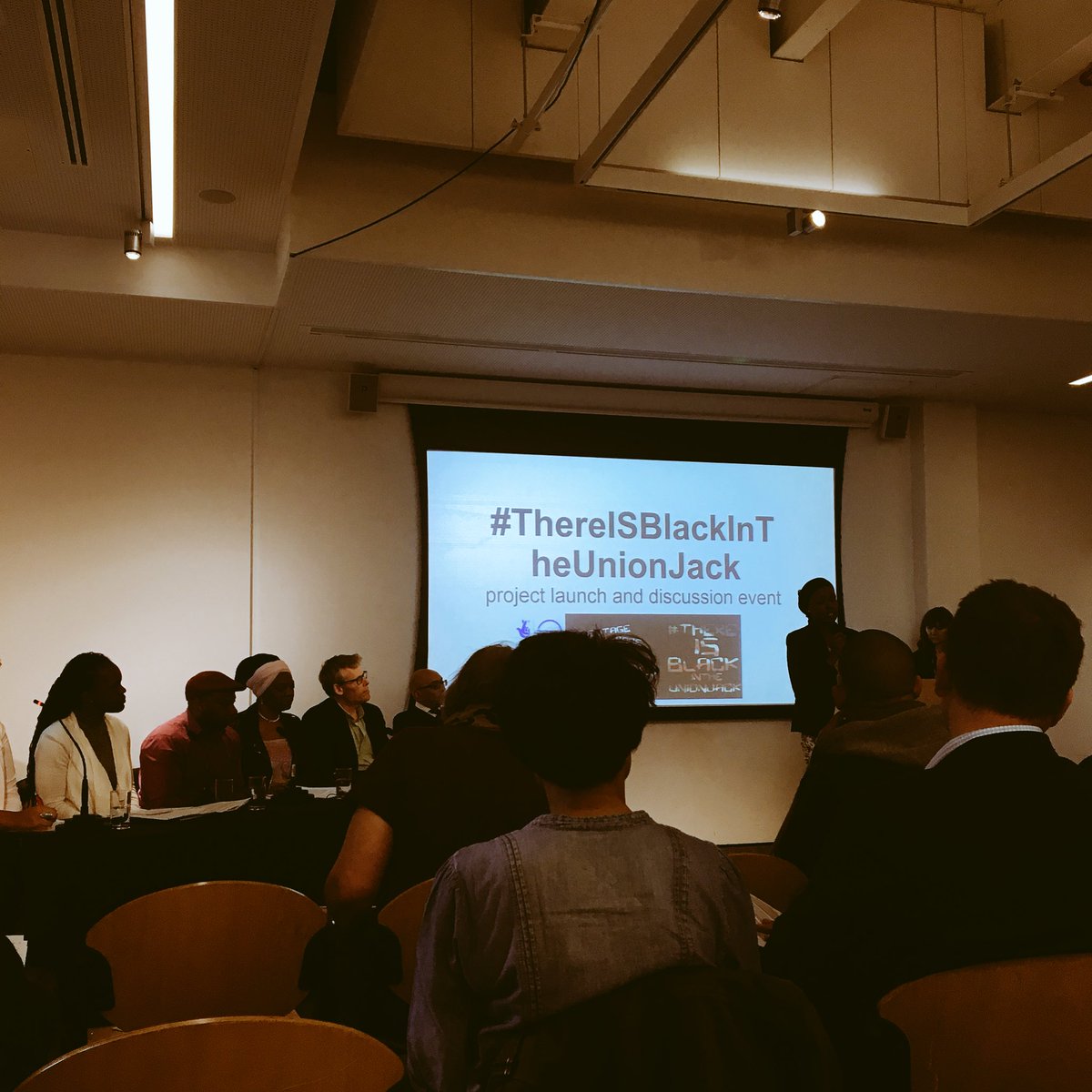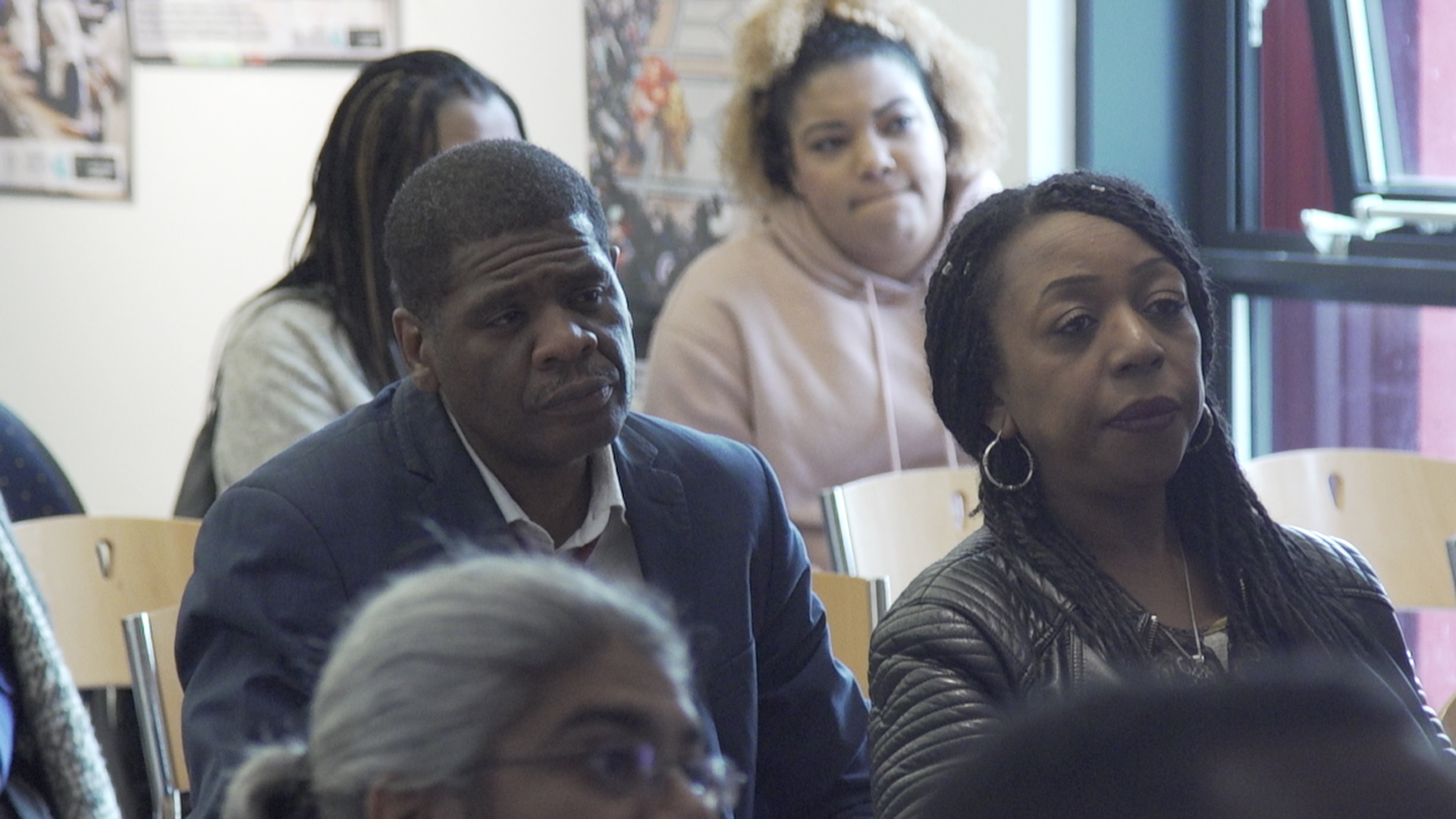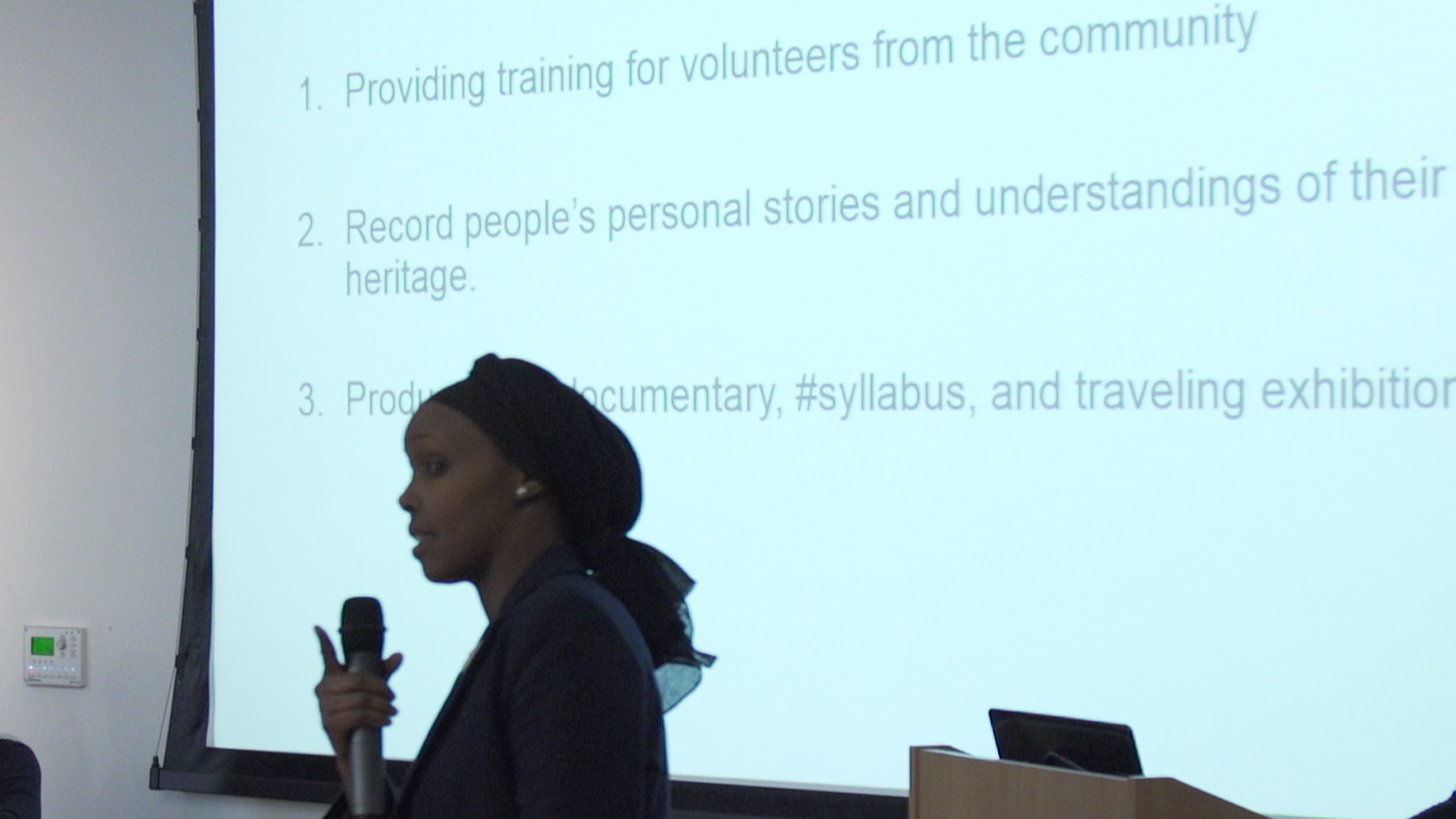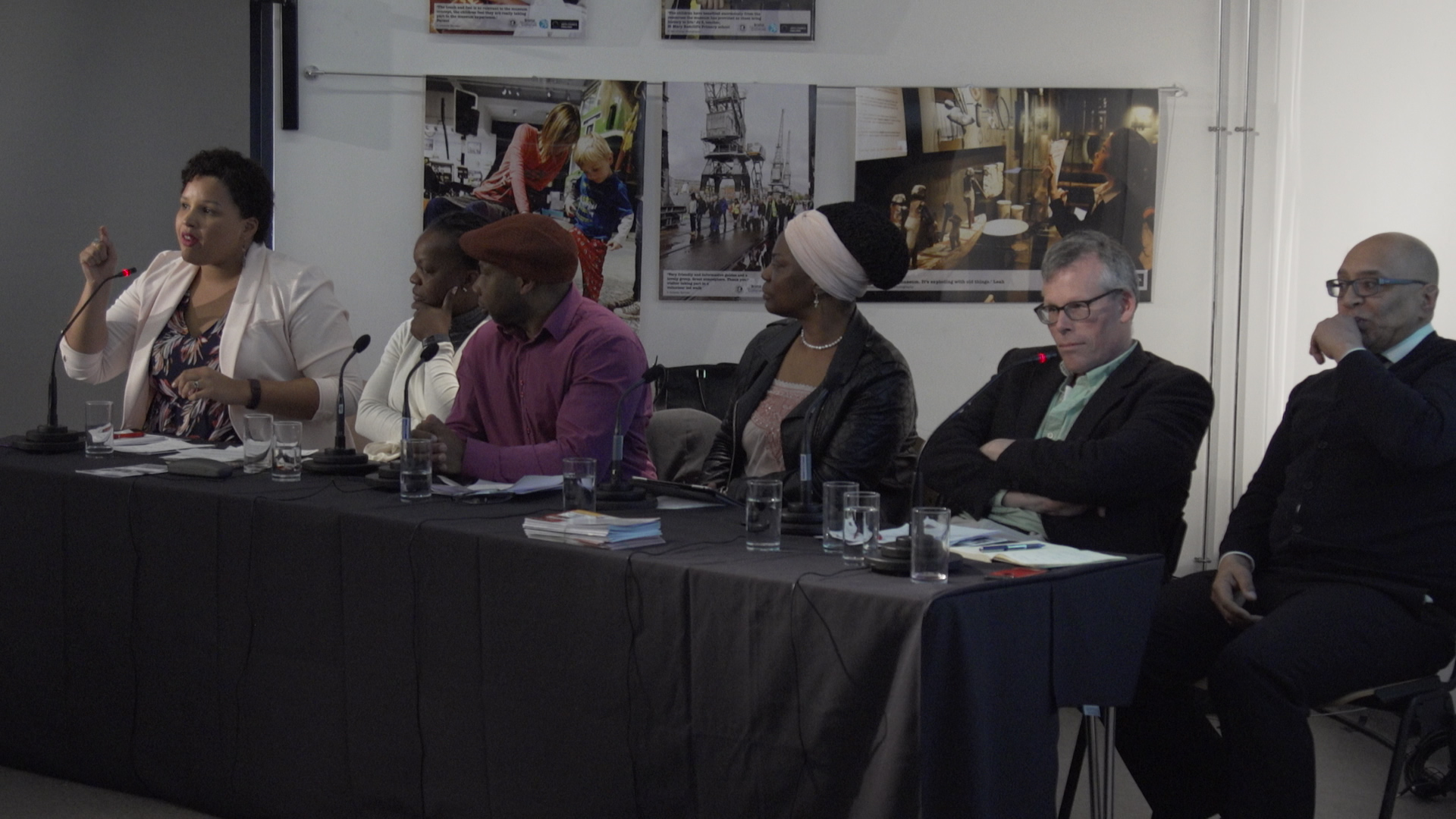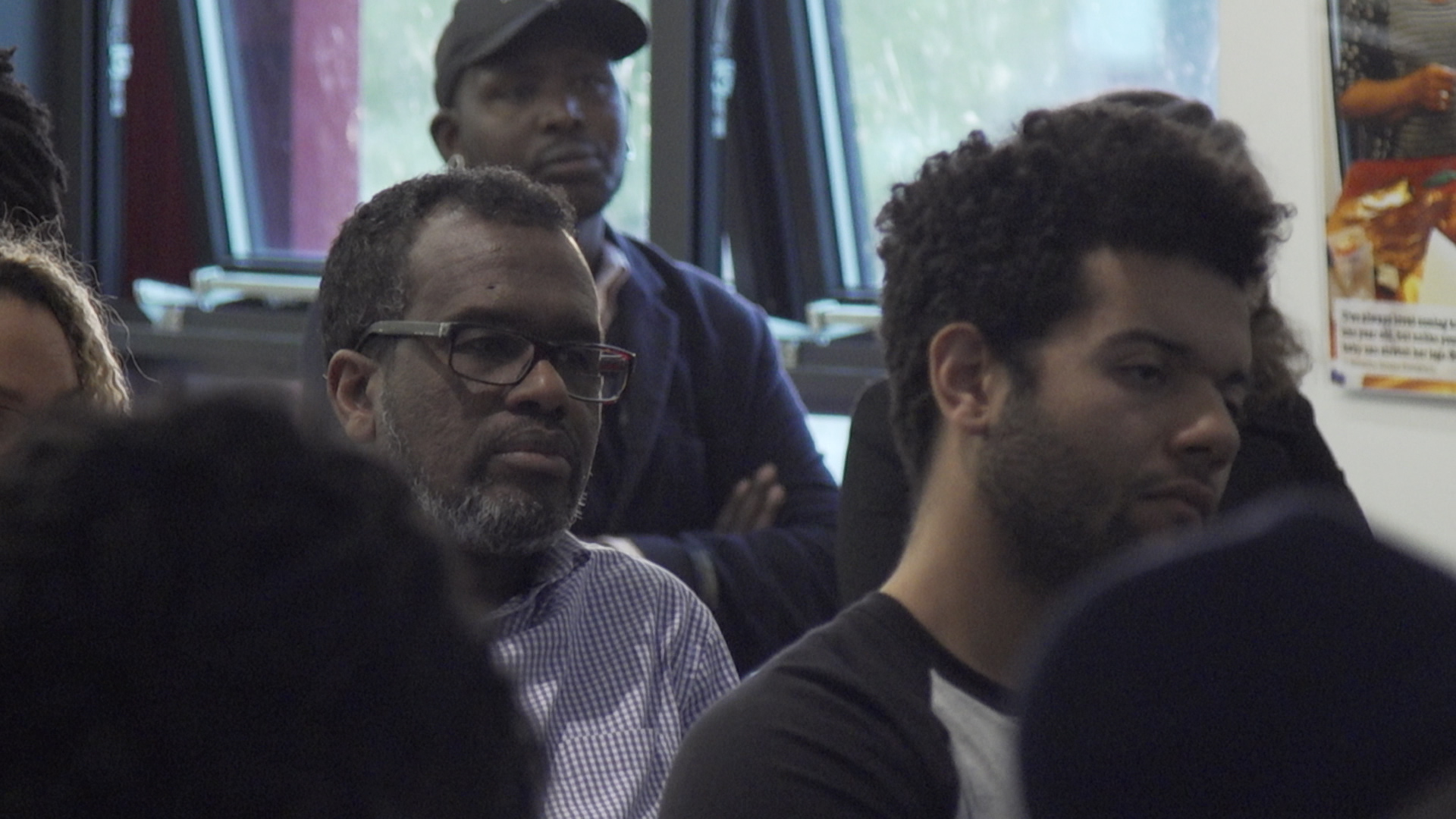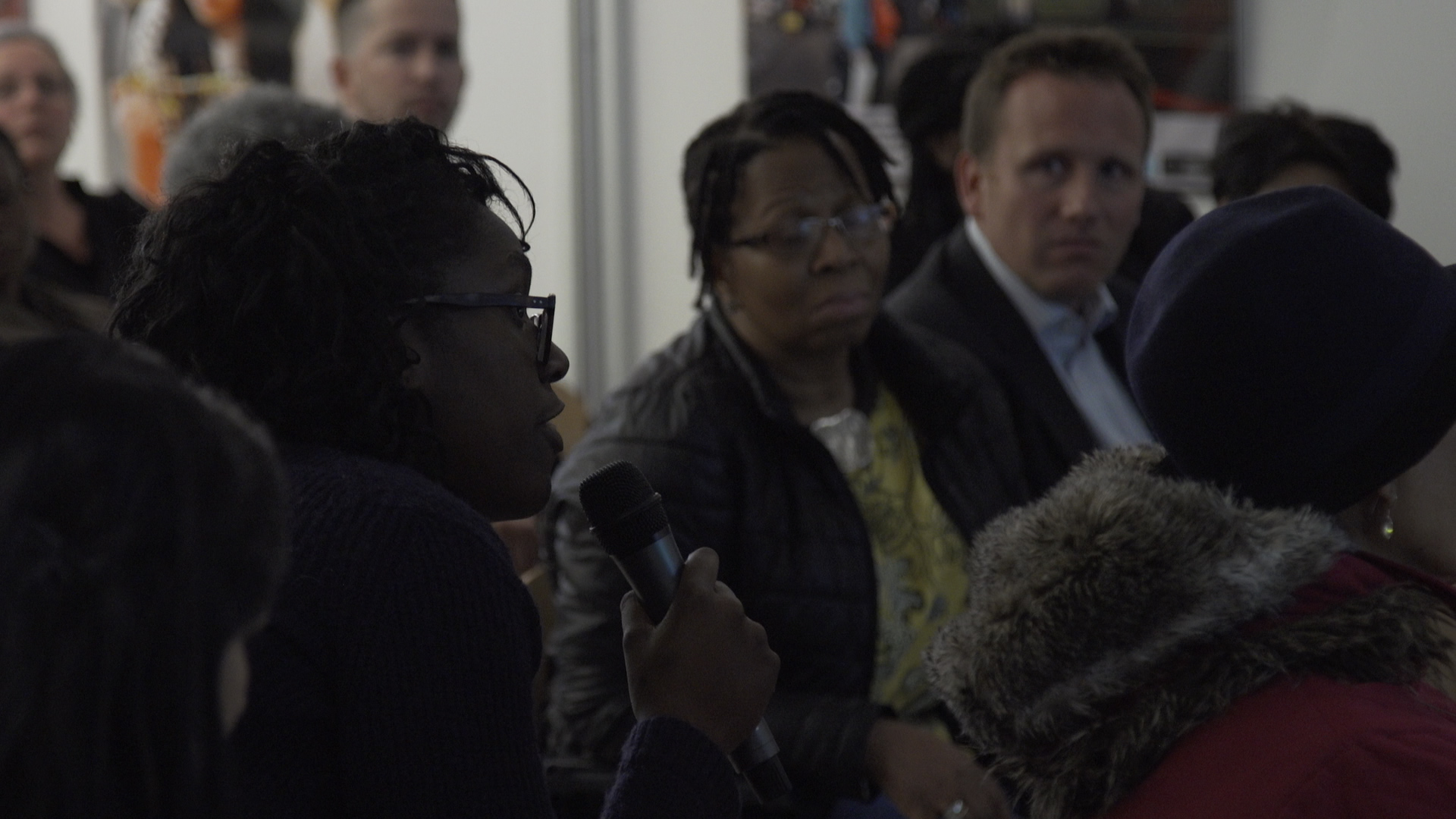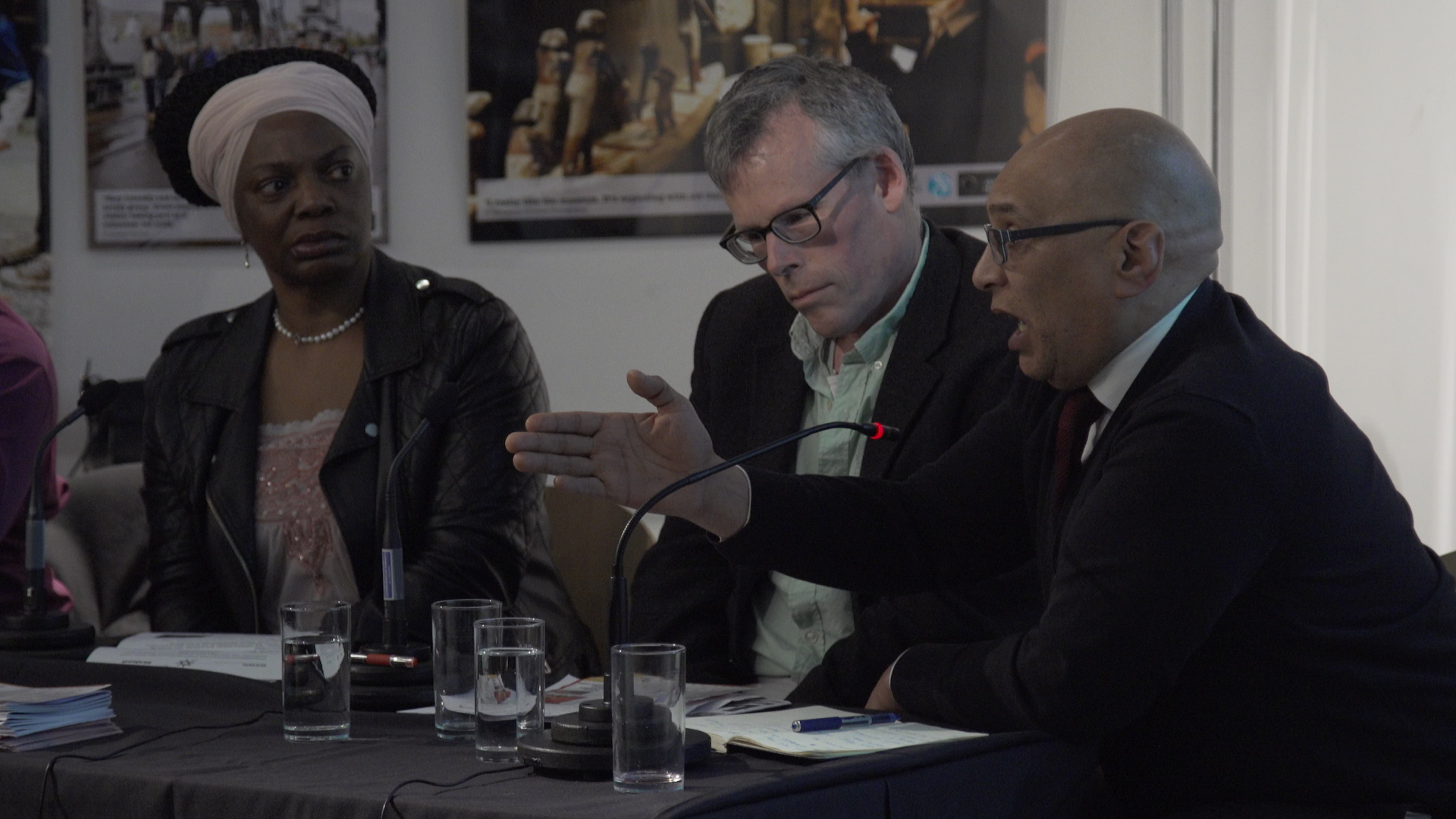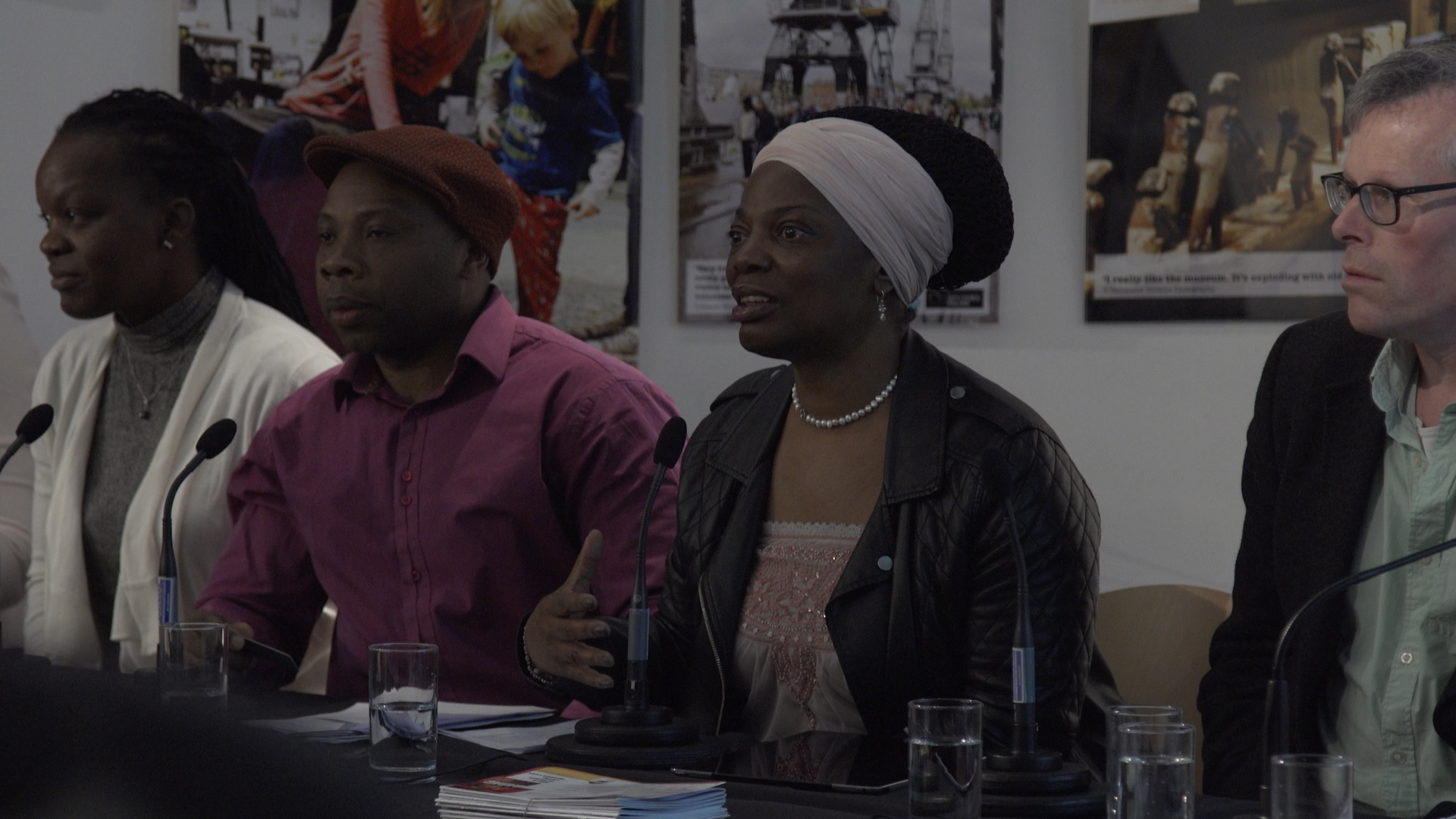Project Launch at The M Shed, Wapping Road, Bristol BS1 4RN
Wednesday 19th April 2017, 6 p.m.
What does it mean to be black in Britain today? What is the place of blackness within Britishness? These are the driving questions of a new Heritage Lottery Funded project by Black SouthWest Network called #ThereISBlackInTheUnionJack. BSWN launched the project with a panel debate at the M Shed on April 17, 2017. Sado Jirde, director of BSWN, opened the launch with an overview of the project – giving a timeline of BSWN led HLF projects from 2010 to the present that have traced the impact and legacy of BME heritage within the Southwest of England. Dr. Edson Burton chaired the panel that had a mix of academics, organizers, and politicians speaking on issues of identity, race, and belonging in post-Brexit Britain and post-Trump America. Dr Burton invited the audience to reflect on what changes this had wrought on the sense of belonging of members of the Bristol BAME communities and whether progress had been made from the days of the publication of Dr. Pau; Gilroy’s ground-breaking book “There Ain’t No Black In the Union Jack” and Norman Tebbit’s cricket test which he devised in April 1990.
Activist Lee Jasper (London), Dr. Jon Fox (University of Bristol), Councillor Asher Craig (Bristol), Dr. Marie-Annick Gournet (University if West England), and Dr. Nicole Truesdell (Beloit College- USA) all engaged in a lively debate on the following questions: How do members of the BAME communities understand their heritage today? Who really belongs to the UK today and what do we mean by ‘belong’? Has Brexit intensified feelings of insecurity or self-awareness? What parallels if any can we draw with the black experience in the USA post Trump? Overall, panellists spoke on various structural issues that maintain inequality in the UK and beyond. Jasper spoke of the limited numbers of BME individuals in higher management roles and linked that to large cuts in areas of equality and race by the home office. Even though there are more and more BME graduating from university, three times more black graduates than white graduates leave university without employment. Craig pointed out mounting economic inequality that cuts across ethnic and racial groups in the UK, but heavily impact BAME communities to most – especially after cuts to the EHRC. Gournet highlighted issues of identity amongst dual heritage people and how that impacts sense of belonging. Fox highlighted the ways non-British white Europeans are seen in the British context, and the ways xenophobia has entered the national rhetoric pre and post Brexit. And Truesdell focused on the ways anti-blackness is a sort of global currency that allows for the maintenance of inequality, and gives some part of an explanation of the election of Trump in the United States.
Audience members engaged with panellists, and pushed them further to think about who was missing from the discussion and to think about the title of the project. Many in the audience wanted to hear more from young BME people in the community on what their opinions were on issues of race, identity, heritage and belonging in the UK. One member of the audience also added that we needed to think more about the intersections of identity – what it means for instance to be black, young, a woman, queer, disabled all in the same body. Truesdell from the panel also echoed this sentiment. There was some discomfort from members of the audience that the panel was held at the MShed, a location on the waterfront, and not within the BME community. Yet, members of BSWN did provide a history of various events like this one being held within specific BME communities in Bristol, alongside locations like the MShed.
Dr Edson Burton closed the event and thanked the panel for their stimulating and wise contributions as well as the audience for its lively participation. After the event we had a number of individuals ask to take part in the HLF project, with some joining us for our first volunteer workshop held May 30th over the course of 3 days.


